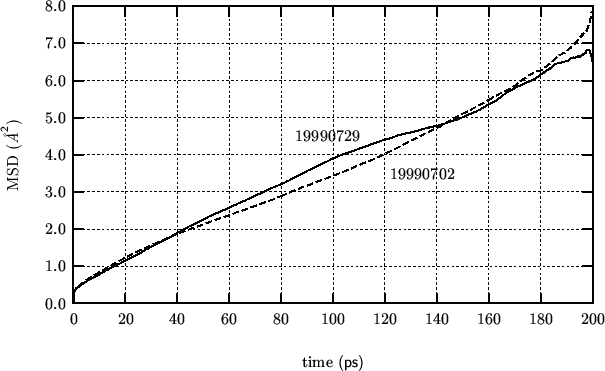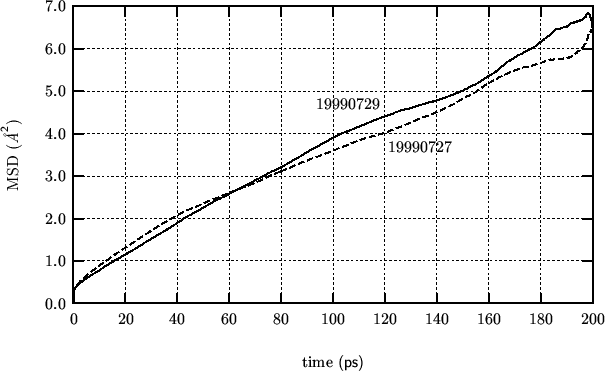
Differently from what happened for 19990709 vs 19990727, in the present case the long equilibration time does not produce appreciable changes.

However, this is good news for us, since we may now compare 19990727 and
19990729. In fact, these two calcs are now fully comparable: they have
been performed on the same machine (t3e) and all other
DL_POLY parameters are the same. The two runs differ only in the
starting configuration: however, the two different configurations are
qualitatively similar, in the sense that both were created
with the dlsub code so as to avoid any
![]() ,
,
![]() or
or
![]() tight
pair (i.e. in nearest neighbor position).
tight
pair (i.e. in nearest neighbor position).

At this point, we can compare the two (19990702 19990707) and (19990727 19990729) pairs of calculations, hereinafter called ``short'' and ``long'' equilibrated, respectively.
The two calcs of each pair are fully comparable, i.e. the input was identical, apart from the starting configuration, which however was ``standardized'' in the dlsub code sense.
The difference between the short and the long equilibrated pairs
of calculations is just the equilibration period, which was ![]() time steps for the short pair and ten times longer (
time steps for the short pair and ten times longer (![]() time
steps) for the long pair.
time
steps) for the long pair.
Another difference is that the short pair was run on utsj90 while the long one was run on t3e, but I'm now becoming confident that there should not be problems in comparing calculations run on these two machines; see 19990709 and 19990728
From the obtained results it looks like the equilibration period makes a BIG difference:

In the light of these results I would say the following: